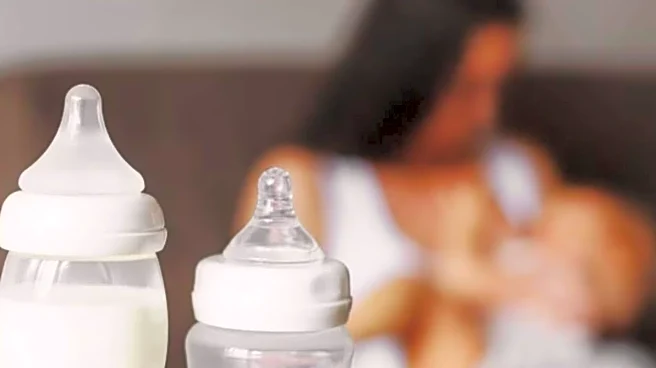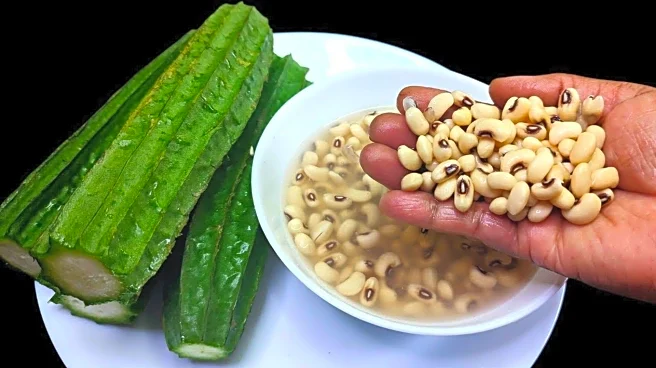A new scientific study reporting the presence of uranium in breastmilk samples from mothers in parts of Bihar has raised questions about potential health implications. The research, published in the medical journal Nature, examined breastmilk from 40 women across six districts and detected uranium in all samples.
While the findings highlight an important environmental-health issue, experts told News18 the levels reported do not warrant alarm or changes in breastfeeding practices.
What the study found
The study measured uranium concentrations up to 5.25 µg/L in lactating mothers and used risk-modelling tools to estimate potential exposure in infants. It calculated an average daily dose far below established toxicity thresholds and found that the estimated non-carcinogenic
risk crossed the statistical reference value in a significant share of the sample. However, no carcinogenic (cancer-related) risk was immediately observed. Researchers linked the likely source to naturally occurring uranium found in groundwater in parts of the Gangetic plains.
‘An issue to acknowledge, but no reason to panic’
Dr Chandra Mohan Kumar, head of paediatrics at AIIMS Patna, told News18, “Uranium was detected in all 40 samples collected from central Bihar and the likely source is maternal consumption of contaminated water. Such exposure can adversely affect both mothers and infants. Uranium can lead to kidney problems and may be deposited in bones, increasing the risk of fractures in the short term. In infants, there is also a potential risk of cancers, renal issues, cognitive delays and intellectual impairment in the long term.”
However, Kumar said, the levels found in the study are much below alarming thresholds, “so the situation is not immediately alarming”.
He advised that ensuring a safe water supply and proper filtration are essential. “Infants who have been exposed should undergo regular screening under early childhood development programmes for timely assessment.”
Similarly, according to Dr Pragya Shukla, head of department, Delhi State Cancer Institute (DSCI), the findings deserve attention but without creating fear. “At present, based on this study, there is no reason to panic, but it is definitely an issue to be paid importance to,” she said. She noted that any heavy metal above permissible levels is a concern and that uranium in breastmilk could, over sustained exposure, affect developing organs such as neurons and nephrons. “Potential long-term consequences of chronic high exposure may include renal toxicity, neuro-cognitive impairment, behavioural issues, lowered immunity, autoimmune conditions and, in severe circumstances, cancers such as leukaemia or bone cancer.”
Shukla added that these risks are theoretical and correspond to significantly higher and prolonged exposure than what this study reported. She said the current data should be viewed as an early signal demanding better monitoring of groundwater, rather than a trigger for immediate alarm in households.
Another expert, gastroenterologist and public-health specialist Dr Rajeev Jayadevan, stressed that the word “uranium” often sounds frightening because of its association with radioactivity, but the detected quantities here are far from harmful. “The word ‘uranium’ sounds scary to many people because of its radioactive potential, but this study does not really show harmful levels,” he said. Uranium, he explained, is a naturally occurring metal found in rocks and soil, and trace amounts routinely dissolve into groundwater in many parts of India.
He pointed out that the level seen in breastmilk in this study is roughly five times lower than the World Health Organisation’s safe limit for drinking water — a benchmark meant for adults consuming water in large quantities. “Besides, the total amount of uranium a baby actually gets from breastmilk is far lower than what an adult would take in from drinking water. This adds another layer of safety,” he said.
Jayadevan also emphasised that uranium-related kidney toxicity occurs only at far higher doses than those detected. “So this report does not indicate any immediate health risk to mothers or babies,” he said.
The bigger risk: Misunderstandings leading to breastfeeding disruption
The experts News18 spoke to agreed that misinterpretation of the study could cause far more harm than the uranium levels themselves. “The real danger is misunderstanding this news and stopping breastfeeding in panic,” Jayadevan said.
According to him, breastfeeding should begin early, continue consistently, and should not be interrupted because of these findings, as breastmilk remains crucial for immunity and nutrition.
Kumar from AIIMS Patna specifically highlighted that “breastfeeding must continue”. “Do not shift to powdered milk because that too requires water, which appears to be the main source of contamination. Breast milk still offers significant protection and benefits for infants, even if there are some concerns.”
The experts said the study’s value lies in highlighting the need for systematic monitoring of groundwater quality and environmental contaminants, especially in regions known for naturally occurring heavy metals. They also underlined that breastfeeding continues to remain the safest and most beneficial practice for infants, and nothing in the current data justifies changing that.



/images/ppid_59c68470-image-1770652537956142.webp)
/images/ppid_59c68470-image-17706525374275258.webp)
/images/ppid_a911dc6a-image-177065360630160718.webp)

/images/ppid_a911dc6a-image-177065352941295241.webp)
/images/ppid_a911dc6a-image-177065357074889418.webp)







